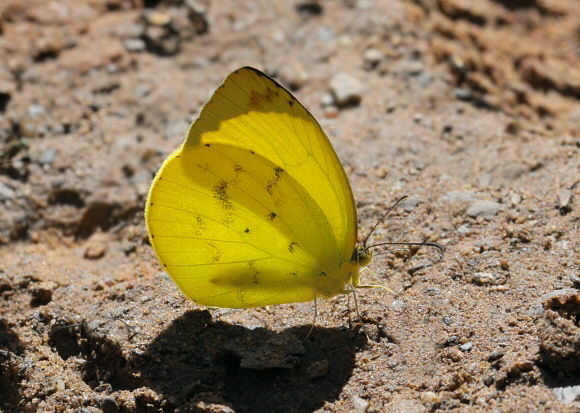
Introduction
The genus Eurema was until fairly recently represented in the neotropics by about 30 species, but several have now been reclassified as Pyrisitia, leaving a total of 19 currently recognised species in the neotropical region. Elsewhere in the world the genus has 9 species in Africa, 2 in Madagascar, and 9 in the Oriental and Australian regions.
These smallish butterflies are characterised by having yellow or white uppersides, with dark apical markings. The forewings have a strongly curved costa and a squarish apex. The hindwings are rounded in most species, but in salome, xantochlora and arbela the termen is projected to a point.
The various species can be told apart by the pattern of mottled dark markings on the underside hindwings, and by the black borders on the upperside forewings, which differ according to species.
Eurema paulina is found in Ecuador, Peru and the upper Amazonian region of Brazil.
Habitats
This species is found in disturbed areas of rainforest including roadsides, clearings, glades and river beaches. It occurs at altitudes between about 200-1400m.
Lifecycle
Unknown. Other Eurema species oviposit on Mimosaceae, Caesalpinaceae, Simaroubaceae and Fabaceae. The eggs are usually laid singly, on the underside of the leaves. Eurema caterpillars are typically dull green, with a whitish line along the sides, and a rough texture. The pupae are typically pale green or yellowish, and have a prominent keel.
Adult behaviour
Males are usually encountered singly, or occasionally in two’s or three’s, when imbibing dissolved minerals from river beaches, seepages and roadsides in forested areas. Females are more often seen nectaring at flowers along roadsides and riverbanks. The flight is fluttery but fairly rapid, and always close to the ground.
